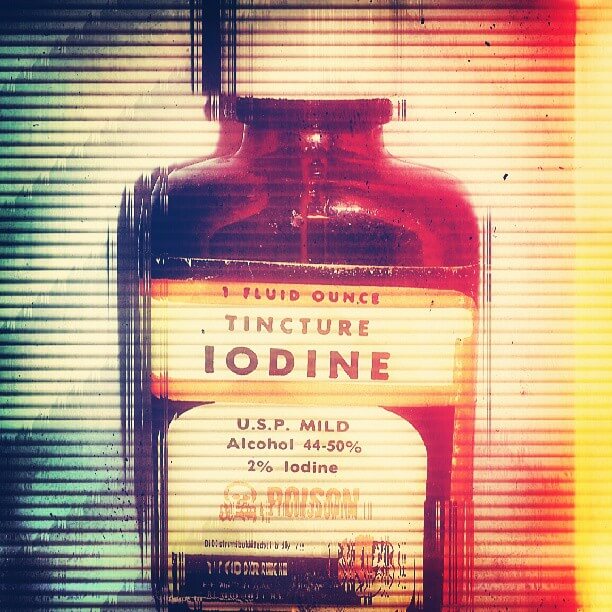

The RDA is 220 μg iodine per day for pregnant women and 290 μg iodine per day for breastfeeding women. RECOMMENDATIONS FOR IODINE INTAKE DURING PREGNANCY AND BREAST FEEDING – Recommended iodine intakes are higher for women who are pregnant or breastfeeding than for other adults. iodine-containing multivitamins marketed for non-pregnant adults have at least 150 μg iodine, but only about 60% of the types of prenatal multivitamins in the U.S. In the US and Canada, one teaspoon of iodized salt contains approximately 250 μg iodine. Individuals who add salt to their food regularly during cooking or at the table should use iodized salt. UNITED STATES RECOMMENDATIONS – The Institute of Medicine has set the Recommended Dietary Allowance (RDA) for iodine in adult men and women at 150 μg per day. Injections of iodized oil are occasionally used in severely iodine deficient regions of the world where widespread iodized salt use is not possible. In regions where iodized salt is not widely available, or where pregnant women are known to have inadequate iodine intakes, use of a daily iodine-containing supplement may be recommended for pregnant and breastfeeding women. Iodized salt has been the mainstay of the prevention of iodine deficiency worldwide. Elimination of iodine deficiency has been a major goal of the Iodine Global Network, UNICEF, and the World Health Organization. Over the last 80 years, worldwide efforts have been made to eliminate iodine deficiency. Even mild iodine deficiency during pregnancy, which may be present in some women in the United States, may be associated with low intelligence in children.Īs with many diseases, it is better to prevent the problem rather than have to treat it. Iodine deficiency is the most common preventable cause of intellectual disabilities in the world. In the most severe form, an underactive thyroid can result in cretinism (a syndrome characterized by permanent brain damage, deaf mutism, spasticity, and short stature), although this has become rare worldwide. Children of mothers with severe iodine deficiency during pregnancy can have intellectual disabilities and problems with growth, hearing, and speech.

Severe iodine deficiency in the mother has been associated with miscarriages, stillbirth, preterm delivery, and congenital abnormalities in their babies. PREGNANCY-RELATED PROBLEMS – Iodine deficiency is especially important in women who are pregnant or nursing their infants. While this is uncommon in the United States, iodine deficiency is the most common cause of hypothyroidism worldwide (see Hypothyroidism brochure). HYPOTHYROIDISM – As the body’s iodine levels fall, hypothyroidism may develop, since iodine is essential for making thyroid hormone. Patients with a large goiter may experience symptoms of choking, especially when lying down, and difficulty swallowing and breathing. Worldwide, iodine deficiency is the most common cause of thyroid enlargement and goiter (see goiter brochure). GOITER – Without adequate iodine, the thyroid progressively enlarges (develops a goiter) as it tries to keep up with demand for thyroid hormone production. Approximately 30% of the world’s population remains at risk for iodine deficiency.Īll of the symptoms of iodine deficiency are related to its effect on the thyroid: However, many other parts of the world do not have enough iodine available through their diet and iodine deficiency continues to be an important public health problem globally. Prevention of iodine deficiency by the introduction of iodized salt has virtually eliminated iodine deficiency and the so-called “goiter belt” in these areas. Thus, iodine deficiency can lead to enlargement of the thyroid (goiter – see Goiter brochure), hypothyroidism (see Hypothyroidism brochure) and to intellectual disabilities in infants and children whose mothers were iodine deficient during pregnancy.īefore the 1920s, iodine deficiency was common in the Great Lakes, Appalachian, and Northwestern U.S. If you do not have enough iodine in your body, you cannot make enough thyroid hormone. Iodine is found in various foods (see Table 1). The body does not make iodine, so it is an essential part of your diet. Iodine is an element that is needed for the production of thyroid hormone.


 0 kommentar(er)
0 kommentar(er)
